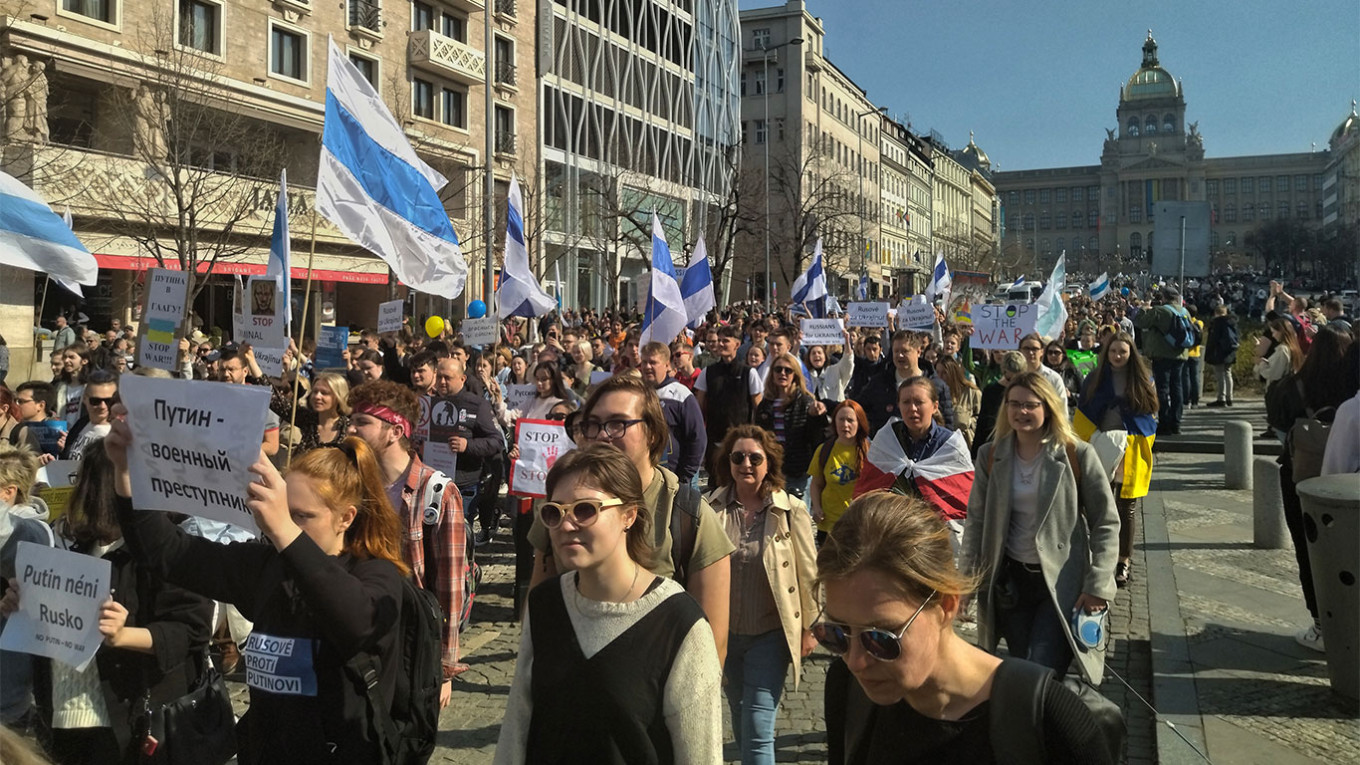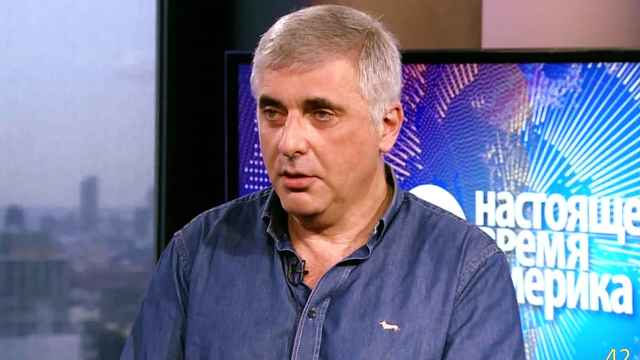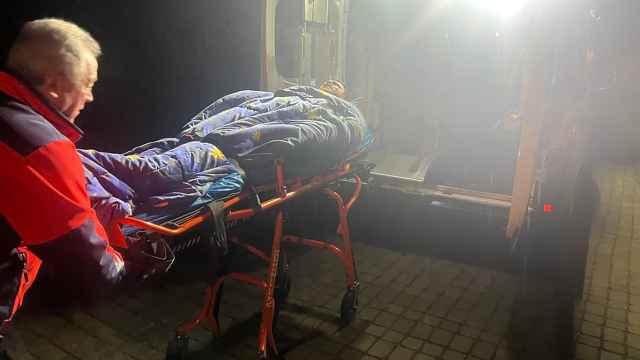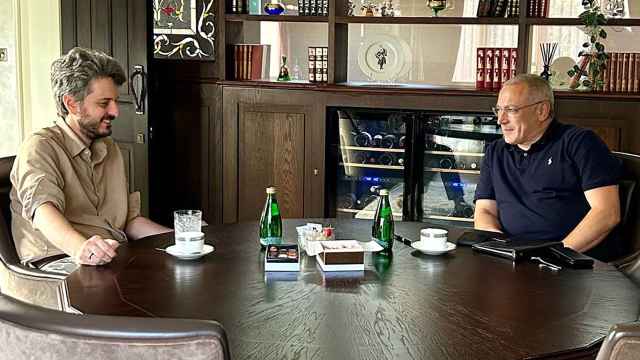The political repression driven by the invasion of Ukraine has drastically altered the landscape of Russia’s disparate opposition. While some well-established movements such as Alexei Navalny’s Anti-Corruption Foundation have been forced to shut down inside Russia entirely, other initiatives to unite those opposed to the war in Ukraine have sprung up in their place.
To make sense of the fractured Russian opposition a year into the war, The Moscow Times has compiled a list of the nine largest and most notable movements — both inside the country and among the Russian diaspora — abroad - advocating for a future without Russian President Vladimir Putin.
The Congress of People’s Deputies
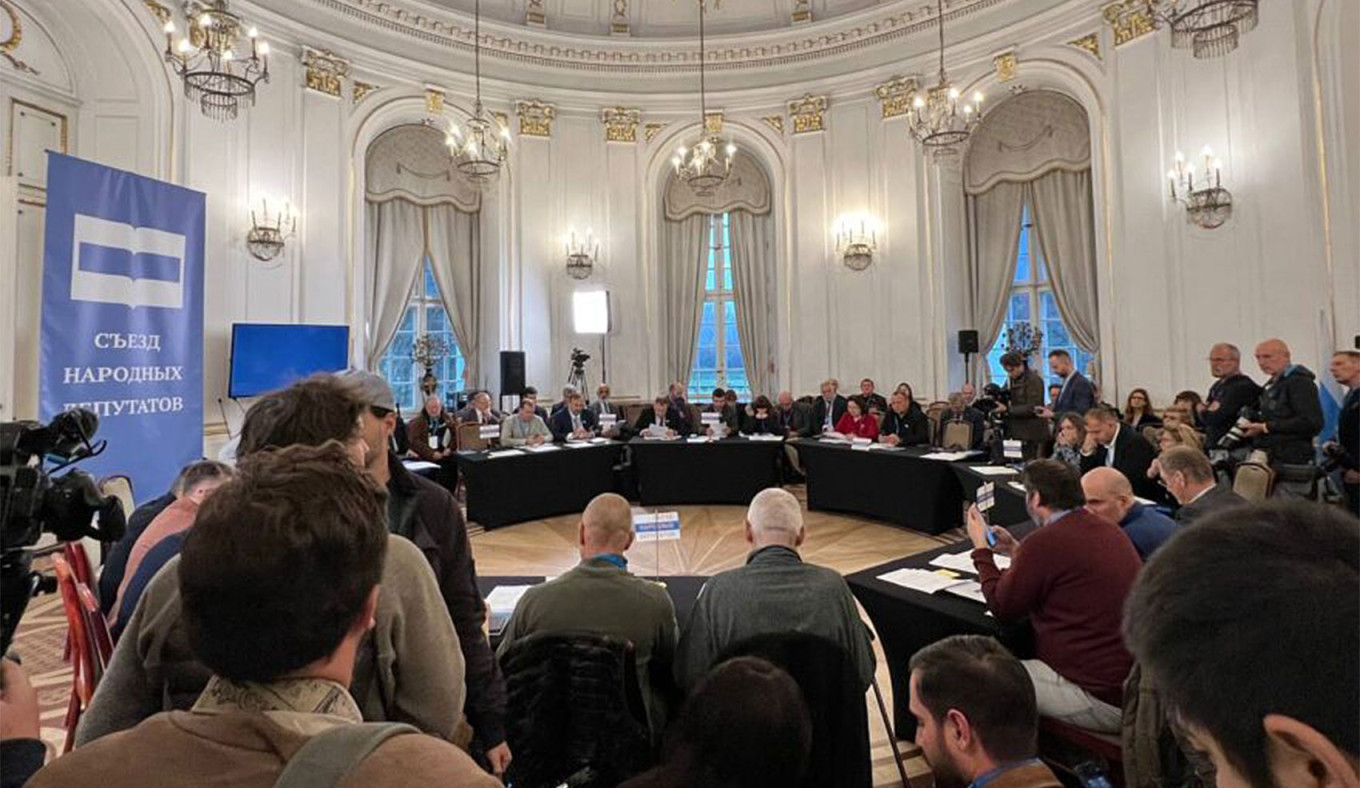
Taking its name from the last Soviet parliament, the Congress of People’s Deputies of Russia aims to create a body of former Russian lawmakers in exile, which, the organizers claim, will be prepared to assume the role of a transitional government in the event of Putin’s removal from power.
Leaders of the initiative, including former State Duma deputies Ilya Ponomarev and Gennady Gudkov and lawyers Mark Feygin and Yelena Lukianova, stake their claim to legitimacy as leaders of the opposition based on having won Russian elections at various levels in the past.
The Congress’s first session, a three-day event that took place in Poland in November, was marred by factional rivalries and saw several potential members withdraw from the coalition citing concerns about its legitimacy in the eyes of the Russian public.
Feminist Anti-War Resistance
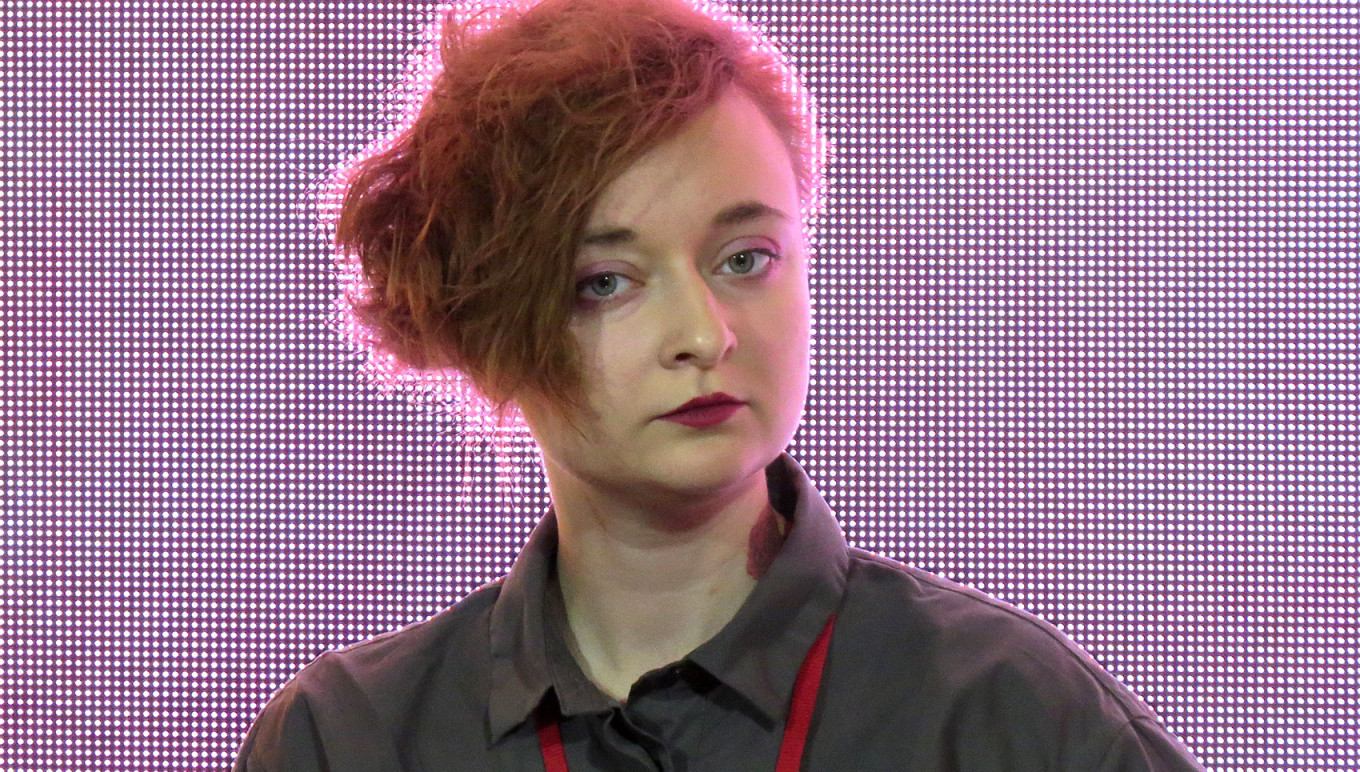
Founded by feminist activists Daria Serenko and Ella Rosman just hours after the invasion of Ukraine began, Feminist Anti-War Resistance (FAR) swiftly became a leading force behind protests against the war both within Russia and abroad.
“We are the resistance to the war, to patriarchy, to authoritarianism and militarism. We are the future and we will win,” reads FAR’s manifesto, which was published on Feb. 25 last year.
The organization’s decentralized, horizontal structure, which allows virtually anyone who shares its values to participate in its activities and use its symbols, has ensured the swift spread of FAR “cells” across Russia’s regions as well as in over 20 other countries.
With the safety of its activists in mind, FAR uses an array of non-violent protest methods that go far beyond traditional demonstrations and single-person pickets. FAR activists have written anti-war slogans on banknotes circulating within Russia, installed anti-war art in public spaces across the country and have even handed out flowers on the streets to get their message across.
Another atypical form of protest that sets the group apart is its use of flashmobs, including one in the Moscow metro where members held public crying sessions to protest the war. The organization also produces “Female Truth,” an anti-war newspaper that is published online and distributed in print by FAR activists across Russia.
The Free Nations League
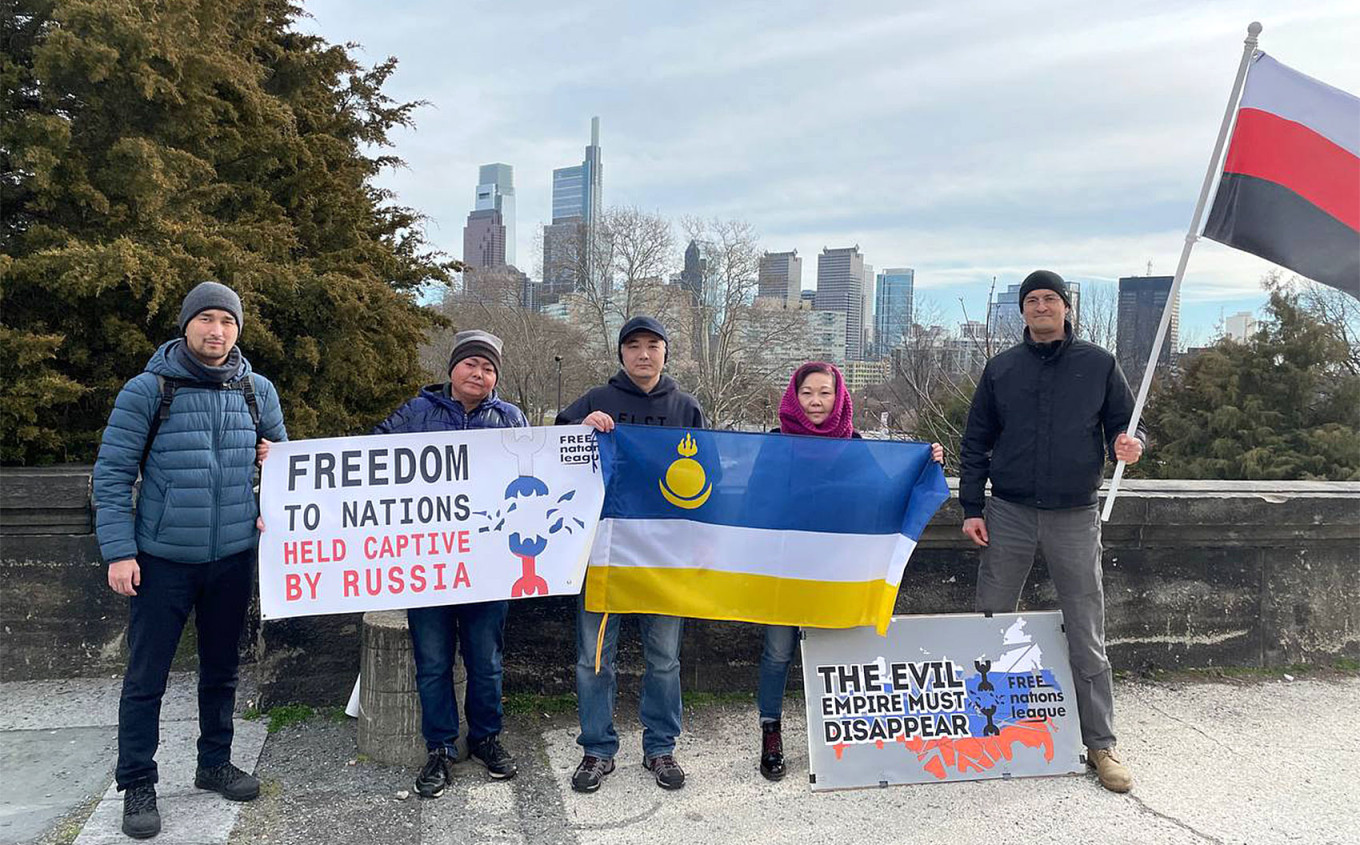
Established in May, the Free Nations League is a platform uniting pro-sovereignty movements and individual activists representing the indigenous peoples of Russia, including Bashkirs, Buryats, Chechens, Erzya and Tatars.
Highlighting the colonial undertones of Russia’s invasion of Ukraine, The Free Nations League positions itself as an “anti-imperialist movement” that seeks independence for Russia’s ethnic republics.
Members of the League have been spotted attending the Free Nations of Post-Russia Forum, which aims to foster discussion and create a plan for the dissolution of the Russian Federation in its present form.
The gathering, which is also linked to Ponomarev of the Congress of People’s Deputies, was criticized both by pro-Kremlin forces and other segments of the opposition, both of which questioned its legitimacy.
The Free Russia Forum
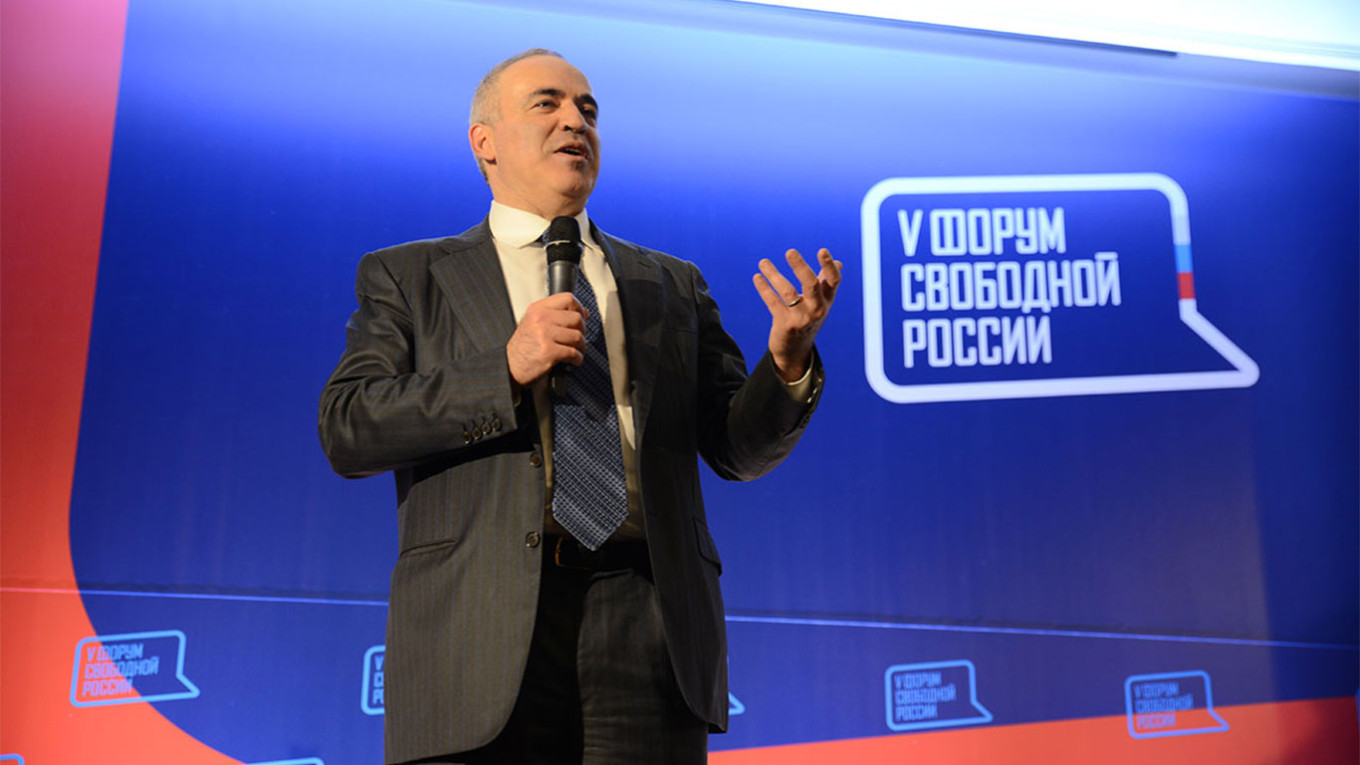
Established in 2016 by chess-grandmaster-turned-political-activist Garry Kasparov and opposition politician Ivan Tutrin, The Free Russia Forum (FRF) works to unite an array of Russia’s opposition-minded activists and “create intellectual alternatives to Putin’s regime.”
Based in Lithuania, FRF has convened 11 times since its founding and has held three anti-war conferences in Vilnius since the start of the invasion.
The Russian authorities added the platform to its list of “undesirable” organizations in February, saying it posed “a threat to the constitutional order and security of the Russian Federation.” Though Russian law requires organizations labeled as “undesirable” to disband, FRF has said the platform did not “intend to stop its activities, including those on Russian territory.”
Indigenous Anti-War Movements
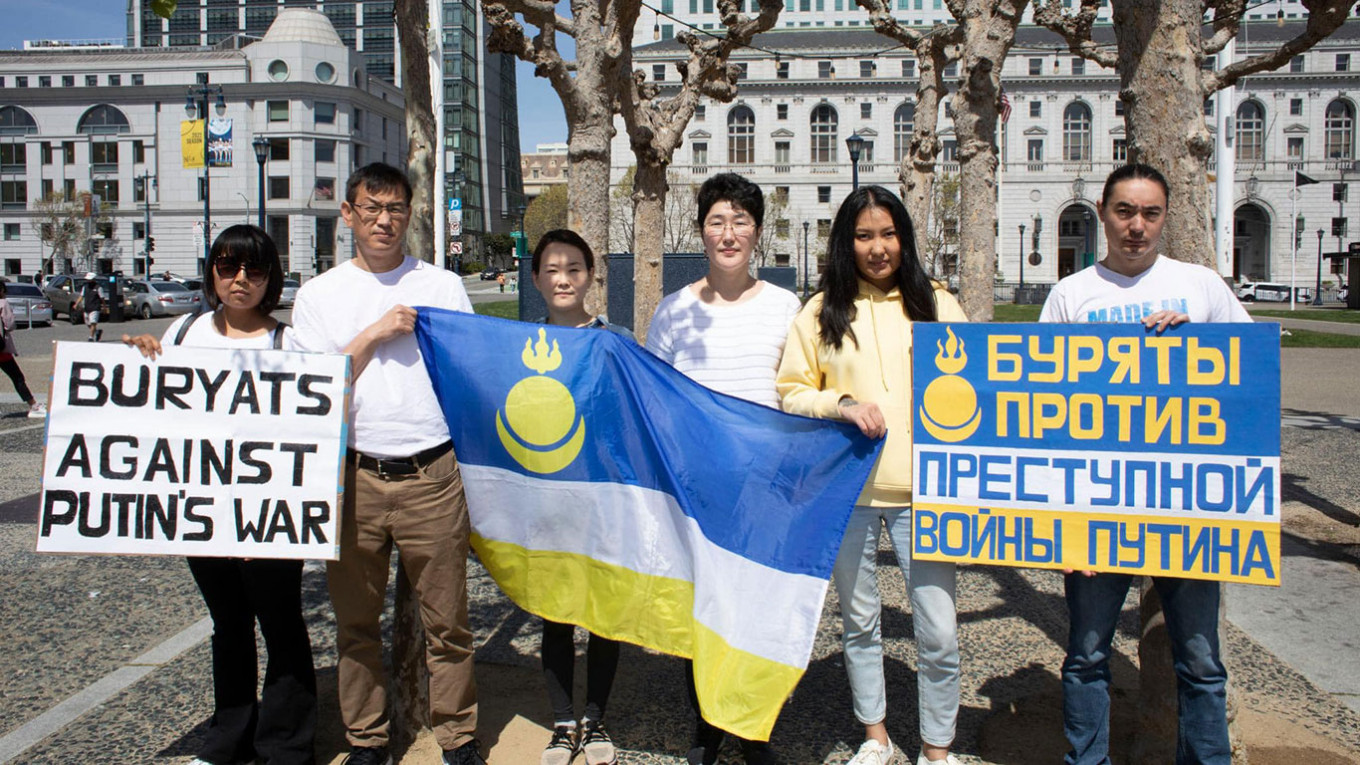
There is mounting evidence that the war in Ukraine has seen a disproportionate share of deaths on the Russian side being borne by soldiers from the country’s minority ethnic communities, many of which are already blighted by poverty and have long been subject to official discrimination.
This has paved the way for the creation of an array of anti-war movements representing non-Slavic indigenous peoples of Russia such as the Free Buryatia Foundation, Free Yakutia Foundation, Free Kalmykia Foundation and Bashkortostan’s Akbuzat movement.
Facilitated by the work of volunteers — most of whom are members of the diaspora living outside of Russia — the various movements concentrate on helping conscientious objectors and anyone attempting to flee conscription, combatting Kremlin propaganda and raising awareness of the systemic discrimination.
Team Khodorkovsky
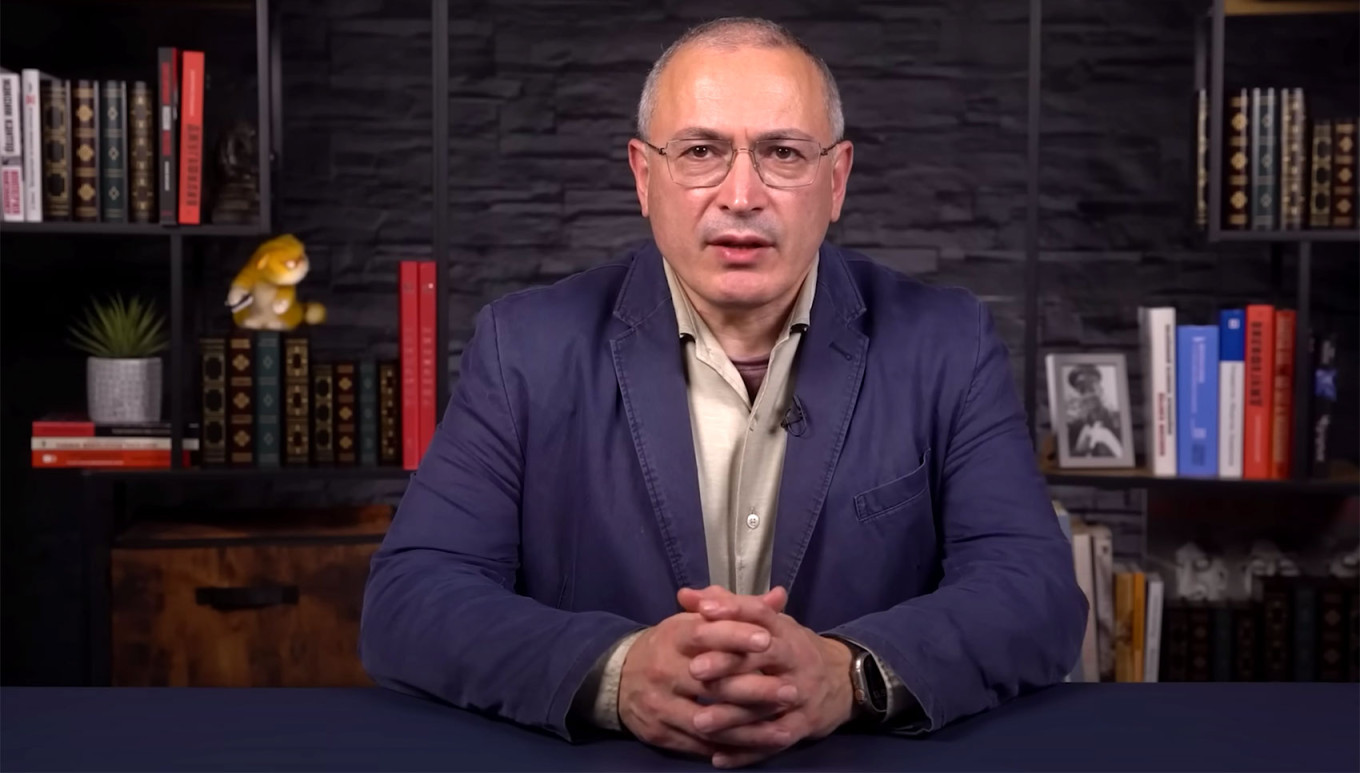
Oil tycoon Mikhail Khodorkovsky entered Russia’s political landscape in 2001 with the launch of Open Russia Foundation, which then worked to “strengthen civil society in Russia.” His decade-long imprisonment on embezzlement charges stifled his political activities, but following his release in 2013 the erstwhile richest man in Russia re-launched the foundation from London where he remains in exile.
The Open Russia Foundation was forced to disband in 2021 after being labeled “undesirable” by the Russian authorities.
But Khodorkovsky, who voiced his ambition to become the next Russian president, has retained a high profile in the media due mainly to his YouTube channel — which boasts over 1 million subscribers — where he posts commentary on current events, and the YouTube news project Open Media.
Team Navalny
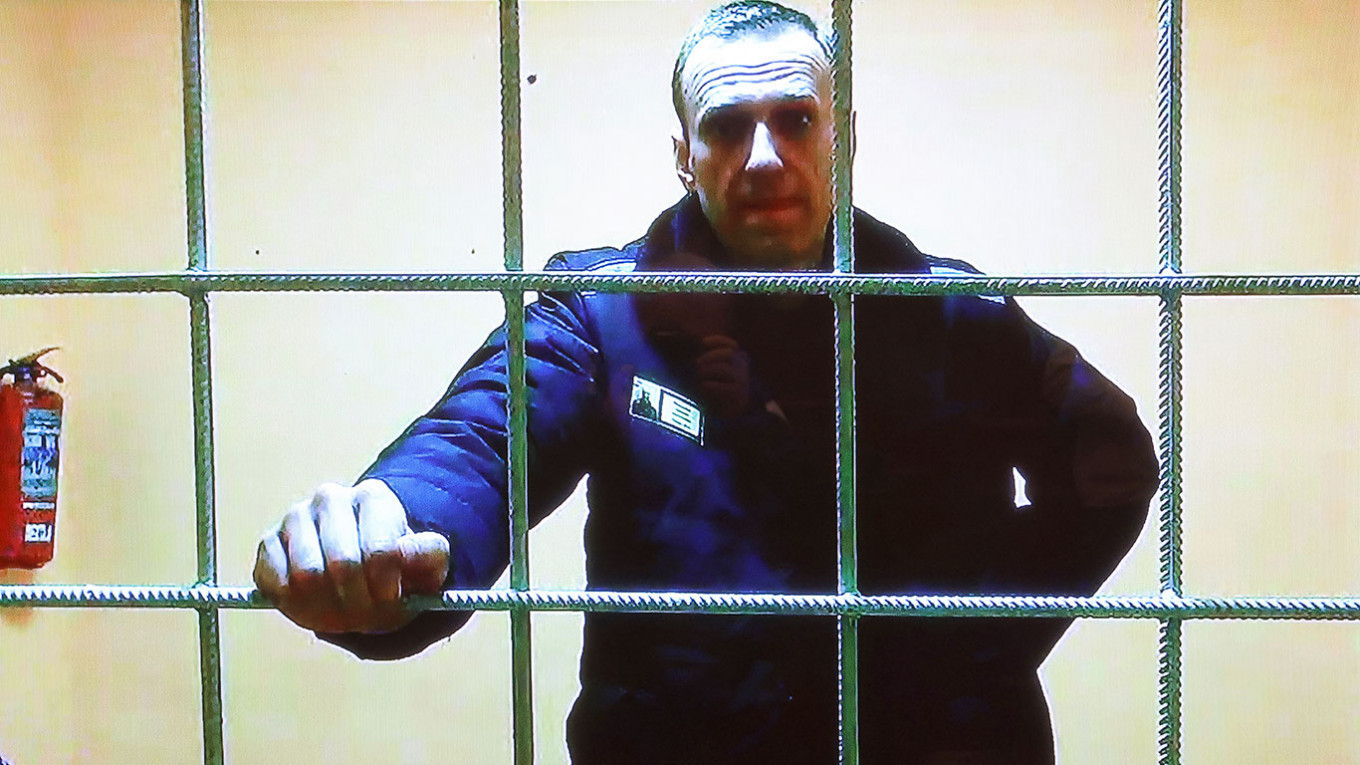
While Navalny remains the best-known Russian opposition politician outside Russia, he and his Anti-Corruption Foundation have been less successful at dominating the political agenda since Navalny was imprisoned and his political network blacklisted as a “terrorist organization” by the Kremlin in 2021.
Most of Navalny’s closest allies have now left Russia for fear of arrest, but they have worked hard to continue their movement’s work from abroad in the wake of Russia’s invasion of Ukraine.
Days after the start of the war, Navalny’s team launched the YouTube-based media project Popular Politics. With over 1.7 million subscribers, the project has allowed Navalny’s key allies to maintain a high profile in the Russia mediascape, including his right-hand-man Leonid Volkov and lawyer Lyubov Sobol.
In October, Navalny’s team pledged to relaunch its in-country political network, which at one point had 50 regional headquarters, “to fight mobilization and war.” In January, the group launched the “Free Navalny” campaign, an attempt to coordinate global efforts to free the Kremlin’s chief nemesis.
The Russian Anti-War Committee
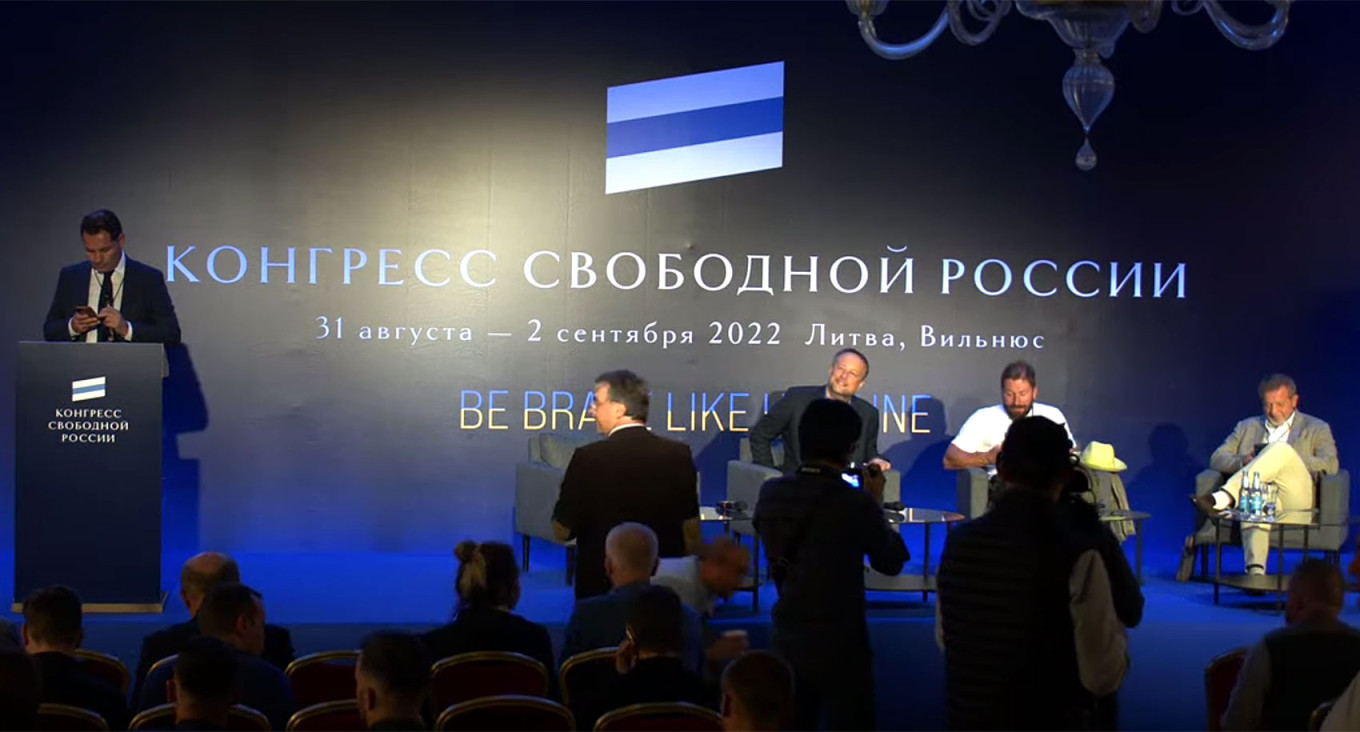
The Russian Anti-War Committee was created by some of the most prominent exiled members of Russia’s liberal opposition, including former oil tycoon Mikhail Khodorkovksy, chess grandmaster and political activist Garry Kasparov, jailed Kremlin critic Vladimir Kara-Murza and businessmen Boris Zimin and Yevgeny Chichvarkin.
The Anti-War Committee’s initiatives include a group set up to provide humanitarian assistance to Ukraine and the Kovcheg Foundation, which assists recent Russian emigres with resettlement.
The Anti-War Committee’s best-known side project is the Russian Action Committee, which aims to provide “every progressive Russian” with a platform for declaring their anti-war stance.
At its first gathering in Lithuania last year, leaders of the Action Committee proposed creating a legal mechanism that would allow Russian citizens with anti-war positions to bypass Western sanctions. The proposal was quickly dubbed “the good Russian passport” and suffered widespread ridicule.
Vesna
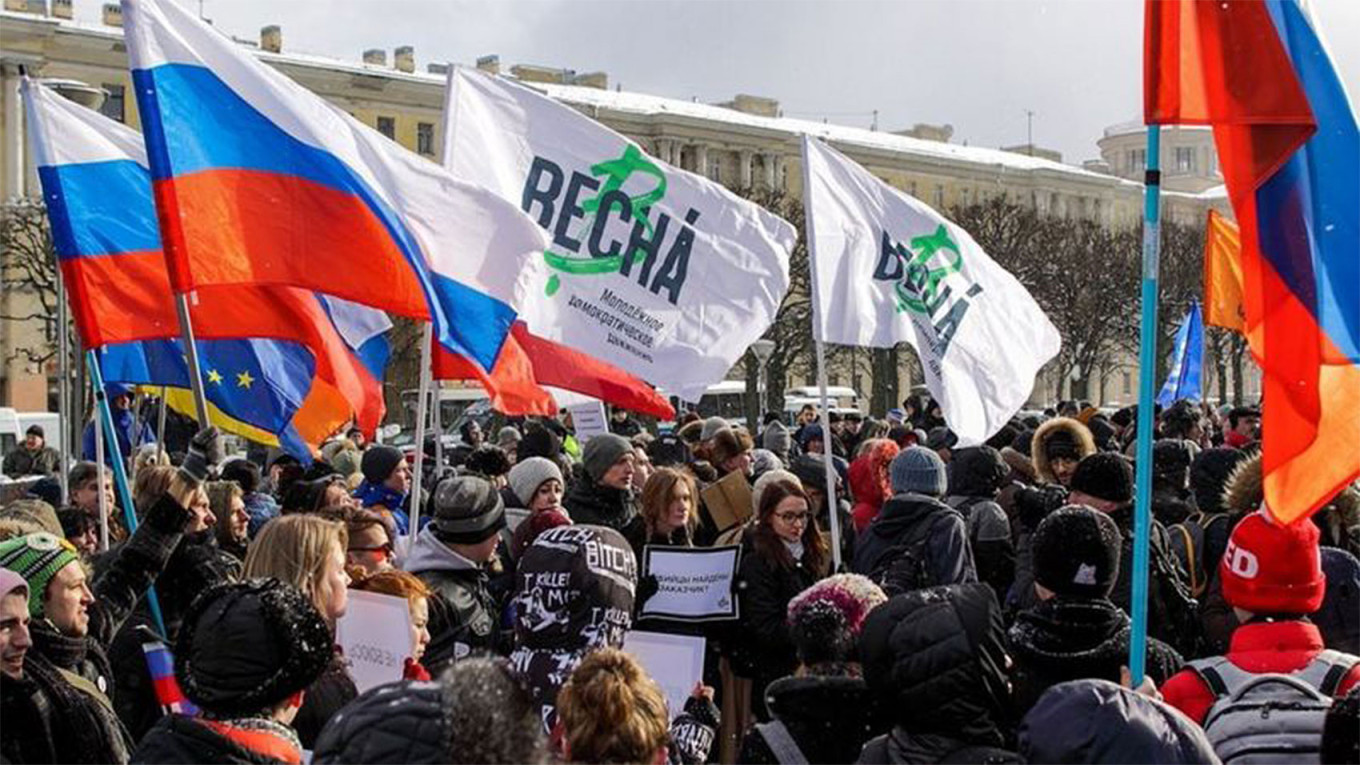
Founded in 2013 by former members of Russia’s liberal Yabloko party, Vesna has grown into one of the largest opposition networks in modern Russia and a de-facto leader of the anti-war street protest movement.
Observing the principle of nonviolence, the group became known for its creative protest acts, including those against Russia’s annexation of Crimea in 2014 and against the corruption around Russia’s 2018 hosting of the World Cup.
Members of Vesna were involved in coordinating the initial protests against the Russian invasion of Ukraine in February 2022, which led to the arrest of some of its members and the opening of two criminal cases against the organization.
The Russian authorities added Vesna to its list of terrorist and extremist organizations in October last year, just days after Russia’s major cities were shaken by anti-mobilization protests. Though Vesna chose not to disband the movement, it halted the growth of its network inside of Russia citing safety concerns and elected to focus its efforts on growing its support among the rapidly growing Russian diaspora.
A Message from The Moscow Times:
Dear readers,
We are facing unprecedented challenges. Russia's Prosecutor General's Office has designated The Moscow Times as an "undesirable" organization, criminalizing our work and putting our staff at risk of prosecution. This follows our earlier unjust labeling as a "foreign agent."
These actions are direct attempts to silence independent journalism in Russia. The authorities claim our work "discredits the decisions of the Russian leadership." We see things differently: we strive to provide accurate, unbiased reporting on Russia.
We, the journalists of The Moscow Times, refuse to be silenced. But to continue our work, we need your help.
Your support, no matter how small, makes a world of difference. If you can, please support us monthly starting from just $2. It's quick to set up, and every contribution makes a significant impact.
By supporting The Moscow Times, you're defending open, independent journalism in the face of repression. Thank you for standing with us.
Remind me later.


